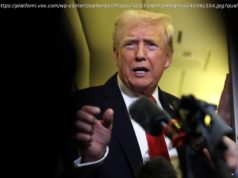WASHINGTON — The Russia investigation may now lead to a question that has triggered legal debate for more than four decades: Can prosecutors subpoena a sitting president…
WASHINGTON — The Russia investigation may now lead to a question that has triggered legal debate for more than four decades: Can prosecutors subpoena a sitting president to testify before a grand jury?
The simple answer: No one knows for sure.
While different lawyers take different positions, they say that — if Special Counsel Robert Mueller seeks to compel President Trump’s testimony via subpoena in the Russia case — the issue would likely be litigated all the way to the top.
«I think everybody would agree, regardless of their position, that it would ultimately be resolved by the Supreme Court,» said Ryan Goodman, law professor at New York University and editor-in-chief of the website Just Security .
Goodman said he believes president can be compelled to testify, citing the Supreme Court’s decision in 1974 compelling President Richard Nixon to turn over White House tape recordings related to the Watergate investigation.
Attorneys like Goodman also pointed the 1997 high court decision allowing the Paula Jones civil lawsuit to go forward against President Bill Clinton. They also cited a footnote in a 2000 Office of Legal Counsel opinion saying that, while presidents cannot be indicted, they can be required to testify in criminal trials.
«The 1974 case of United States vs. Nixon gets us most of the way there,» Goodman said. «The reasoning in the Jones case points in the same direction.»
Others, including members of Trump’s legal team, said the Nixon case refers to document production, not physical testimony. The Jones case, they note, was a civil lawsuit. The footnote in the Office of Legal Counsel opinion applies to witnesses in trials, not people providing evidence in an investigation.
Trump attorney Rudy Giuliani and others pointed to the overall OLC opinion that said «the indictment or criminal prosecution of a sitting President would unconstitutionally undermine the capacity of the executive branch to perform its constitutionally assigned functions.»
The same logic, they said, applies to the preparations necessary to testify before a grand jury.
«It’s quite clear you can neither indict or otherwise use the criminal process against the (sitting) president,» Giuliani said.
The reason, he said, «is not to interfere with the office of the president,» Giuliani said. «The president should not be distracted.»
While Trump has frequently complained that the entire Mueller investigation is undermining his ability to do his job, the question of a grand jury subpoena may remain moot.
Giuliani and other Trump administration officials said they are negotiating an agreement that would avoid the prospect of a Mueller subpoena.






